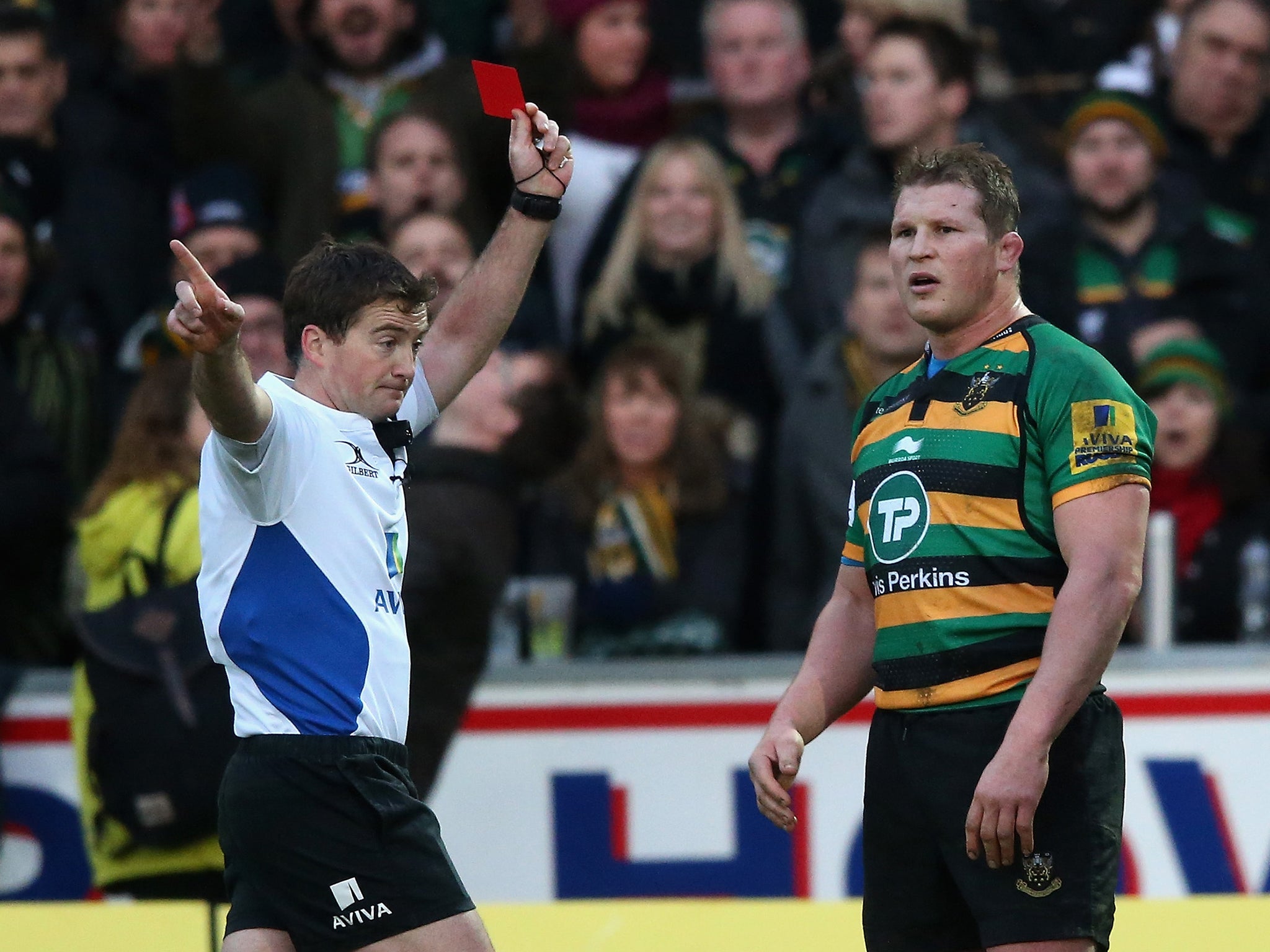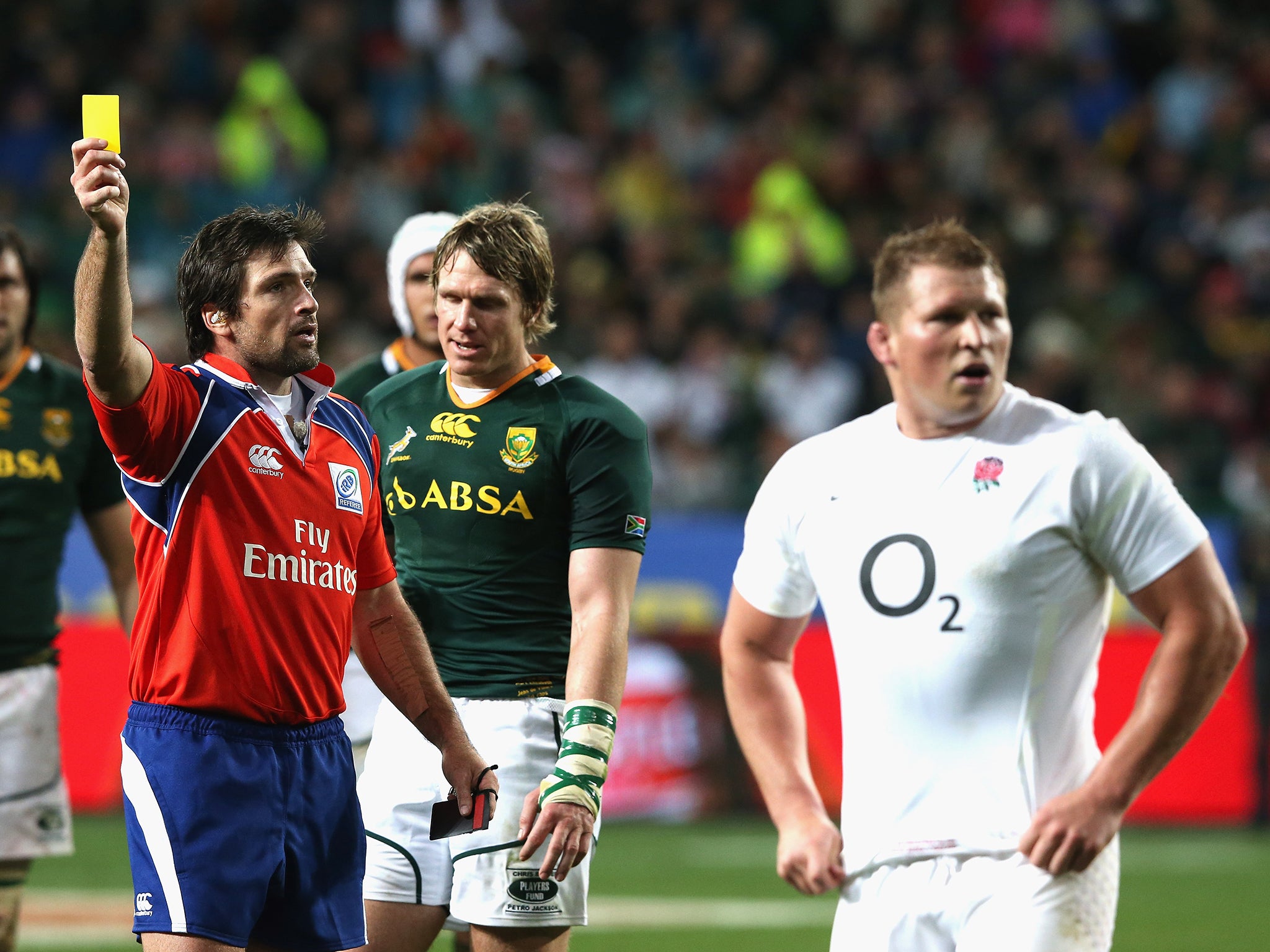Dylan Hartley’s Jarhead mentality is exactly what England need
THE LAST WORD: Dylan Hartley has served five bans but the new coach trusts those who play with their blood up

Your support helps us to tell the story
From reproductive rights to climate change to Big Tech, The Independent is on the ground when the story is developing. Whether it's investigating the financials of Elon Musk's pro-Trump PAC or producing our latest documentary, 'The A Word', which shines a light on the American women fighting for reproductive rights, we know how important it is to parse out the facts from the messaging.
At such a critical moment in US history, we need reporters on the ground. Your donation allows us to keep sending journalists to speak to both sides of the story.
The Independent is trusted by Americans across the entire political spectrum. And unlike many other quality news outlets, we choose not to lock Americans out of our reporting and analysis with paywalls. We believe quality journalism should be available to everyone, paid for by those who can afford it.
Your support makes all the difference.They call themselves Jarheads, in homage to the warrior mentality of veterans from the US Marine Corps. They are a tightly knit group of men who operate on rugby’s front line, and pride themselves on their human qualities at the height of battle.
They see their struggle as being physical, mental and fundamentally emotional. Instinctive loyalty and selflessness are deemed non-negotiable values. Training is fierce and confrontational; weaknesses are sought, revealed, exploited and explained.
The tone is set by their leader, Dylan Hartley, and their coach, Dorian West. The dynamics of their group, the forwards at Northampton Saints, indicate the wisdom of new England coach Eddie Jones’ apparent intention to make Hartley his captain.
It is the right choice, a decision that defines Jones and his vision of renewal. It is bold, contentious and challenges convention. Those aghast at the prospect of appointing a flawed figurehead, critical of the abandonment of the culture shift sought by Stuart Lancaster, are missing the point.
Regime change is not a time for strategic uncertainty or half-hearted tinkering. The bristles of a new broom are supposed to scour; if they are too soft they merely add sheen to failure.
Hartley is untainted by the self-regard, confusion and under- achievement of England’s abject World Cup campaign. He is not the submissive type and his technical merit, often underplayed for the uninitiated by the hidden rituals of front-row rugby, has been much missed.
The selection process has been messy, with Jones’ plans finding their way into the public domain via a supposedly off-the-record briefing, staged before Chris Robshaw has been officially notified of his demotion. Yet it is significant.
Jones evidently admires Hartley’s pugnacity and is prepared to take a calculated risk on the professionalism of a player who is all too aware he has missed more than a year of rugby to suspension. Hartley has served five bans and had even been issued with his kit for the 2013 Lions Tour before he was deselected for disciplinary reasons.
He is a personable character, and has the perspective of recent fatherhood. Yet perhaps the most compelling case for his return is the impact he has on influential opponents. Wales coach Warren Gatland, perhaps the closest to Jones in spirit, has conspicuously failed in the past to unbalance Hartley with acerbic verbal attacks, which signalled subtle respect.
Jones trusts those who play when their blood is up. His emotionally driven unorthodoxy may disconcert the RFU’s corporate time-servers, but it is suited to a rebooted England team that will be obliged to reassert itself in next spring’s Six Nations Championships.
Hartley has the potential to be a rallying point and, when required, an agent provocateur without sullying the authority of the armband. Hookers are by nature distinctive, argumentative and bloody-minded. Brian Moore, from another generation, would be an instructive role model, since he burrowed beneath thin skins.
Pragmatic modern coaches, like Exeter’s Rob Baxter, look beyond the bluster of the Bufton Tufton Tendency. “It’s not as if he’s been out on a Friday night and beaten a granny up” he said of Hartley’s disciplinary issues, after a meeting with Jones earlier in the week.
“The truth is with a lot of players, particularly guys who play their best when they are right there on the edge, you are going to get the odd issue now and again. It’s about whether you feel confident enough as a coach to manage through that scenario.”
The All Blacks recognise and respect Hartley’s bloodlines. He was born and brought up in Rotorua, New Zealand’s Sulphur City, where silver spoons are in short supply. He survived and thrived despite being a natural target in high school rugby, when Maori boys looked after their own with malicious intent and efficiency.
That self-reliance resurfaced when he was taken to live in England by his mother. He retained an outsider’s drive, lacking the social and sporting platform of the public-school system in Sussex and thought on his feet while a lowly paid Academy player at Worcester and Northampton.
He had an urchin’s opportunism, living off the proceeds of illicitly obtained toilet rolls and progressed through unnervingly applied ambition. He made his business personal; individual rivals were pursued, punished and pushed into the background.
At 29, he may have an imperfect past, but his future is tantalisingly poised. Robshaw had many qualities but few followed him into battle. Hartley and his Jarheads march unflinchingly towards the gunfire.

Needless stocking filler
It is a decade since Sepp Blatter, former president of the World Society of Friends of Suspenders, channelled his readily acknowledged love of ladies in stockings and called for female footballers to play in tighter shorts. I wonder what happened to him?
The womens’ game has come of age without his patronage. This year’s World Cup involved the most-watched football match in US history, the final in which Carli Lloyd scored a hat-trick in 16 minutes during a 5-2 win over Japan.
England’s Lionesses, narrowly beaten by Japan in the semi-final, finally pierced our national consciousness. Players of the quality of Lucy Bronze, Toni Duggan and Steph Houghton have become familiar figures.
Quite why progress is supposedly represented by the launch of the Lingerie Football League on Wednesday, when two teams in skin-tight kit are due to play on the rooftop of Hotel Football overlooking Old Trafford, has not been adequately explained.
The uncharitable understandably categorise this as a publicity stunt, tailored for the media’s fallow pre-Christmas period. According to organiser Gemma Hughes, a so-called experiential marketer whose sideline as a lingerie blogger could be said to address a marginal market, it is activism made flesh.
Join our commenting forum
Join thought-provoking conversations, follow other Independent readers and see their replies
Comments